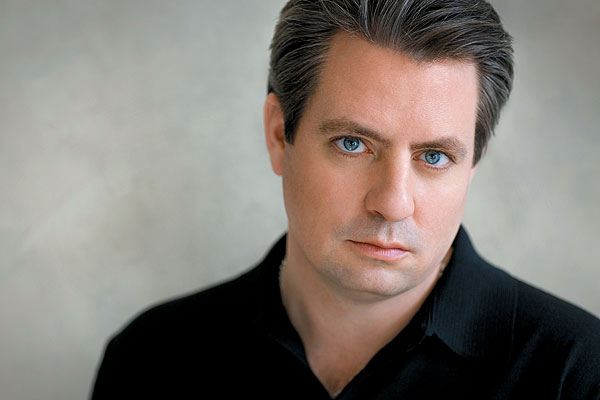
Matthew Polenzani, a tenor and North Shore native, will star in Mozart’s La Clemenza de Tito in spring 2014, the last production of Lyric Opera’s 2013–14 season, which was just announced yesterday. Tito, a role debut for Polenzani, follows his portrayal this season of the title role in Werther. He sat down with Chicago in November in a back room at the Civic Opera House to discuss his hometown, Tito, and the tenor life.
Is it nice to be returning to Chicago?
I think of this house [the opera house] as the house I grew up in, doing the Young Artists program here. I was exposed to the first great singing of my life in this house.
Not to mention seeing your family and old friends, right? The Lyric’s PR person said I could interview you at your parents’ house, which isn’t the normal venue for major opera stars.
My parents are here, my brother is still here, and a lot of my extended family is still here. And all my best friends from high school are still my best friends. They’re all still here. They come to the opera, which is not a thing that they would do typically. We didn’t grow up with it. I didn’t grow up listening to opera. It was not a big part of our family, not the way it is now.
When did you start going to operas?
The first opera I ever saw was the first one I was in.
So you don’t bring a lot of baggage to role debuts. What’s tough about debuting a role?
[Until you come to the final rehearsals,] you don’t know what it’s really like with an orchestra. Sitting with a pianist in a room this size—I can do anything in a room like this. I’m the greatest Siegfried ever in a little room like this.
What do you expect will be the challenges unique to singing Tito?
I wanted to wait a little bit [in my career] for Tito, because this guy has to have a grace and benevolence that somebody with years of life experience can bring. I’d like to add a depth of character and a depth of understanding of life to the part, and I think I’m ready for that now. I’ve sung the Duke in Rigoletto a few times. I don’t really know or understand that guy. I’m not sure that I ever will because his character is so far away from my own.
I’m sure you’re happy your career has had the longevity needed to age into a role like Tito. Do you think it’s harder for tenors to sustain long operatic careers?
There’s a great joke tenors like to tell. They talk about the three registers in the male voice—there’s the bass register, there’s the baritone register, and there’s the cash register. Tenors have to do something the typical human voice doesn’t have to do. Tenors sing in a part of the voice where they don’t talk. And, of course, if they fail, everyone’s aware. If you sing, “Vincerò, vincerò!” [from “Nessun Dorma,” in Puccini’s Turandot], and you crack the B, that’s all they’re gonna talk about, even if the entire rest of the night you sing like a god.
Do you read reviews?
If I get 49 reviews that say I sound like Caruso incarnate and one review that says I sound like a cackling rooster, the rooster one is the one I’m gonna remember. So I try not to read them at all.
Graham Meyer is Chicago magazine’s contributing classical music critic.
Photograph: Dario Acosta


